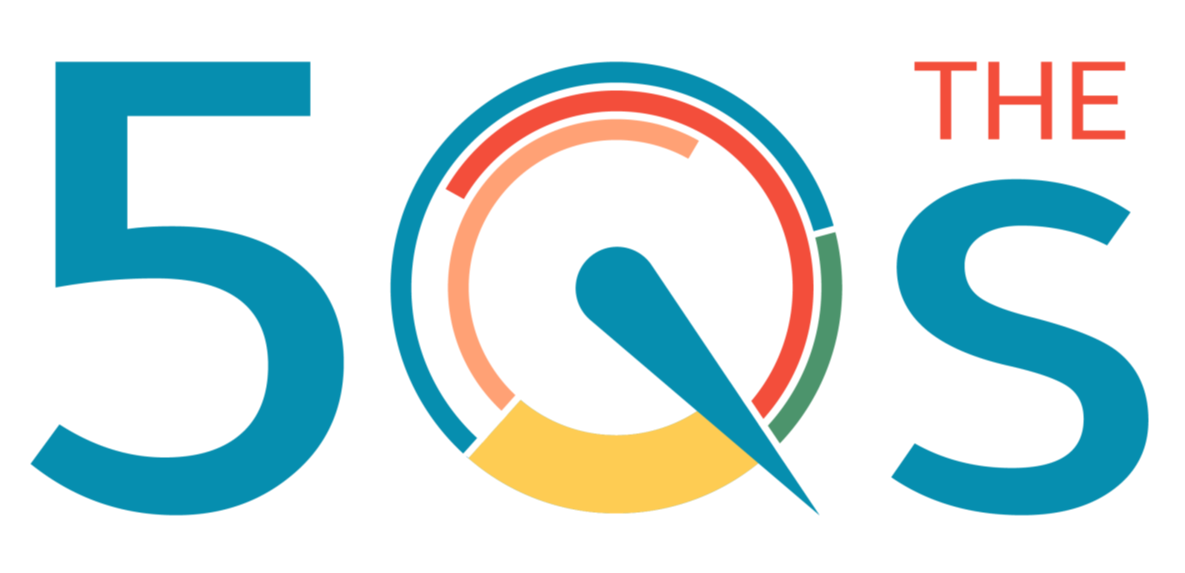The 5Qs in Action: Successful Leadership Case Studies
What makes a great leader? It’s not just brains or charisma – among many other things, it’s the ability to untangle conflicting priorities, rally a team behind a vision and remain calm during a crisis.
At the core of effective leadership lies the 5Qs framework: Cognitive (IQ), Emotional (EQ), Political (PQ), Resilience (RQ), and Moral (MQ) Intelligences. These aren’t abstract concepts – they’re the essential building blocks that equip leaders to deliver meaningful results, even in an unpredictable world.
In this post, we’re breaking down real-world stories that show how the 5Qs framework empowers leaders to thrive in the toughest situations, turning stumbling blocks into (very successful) wins.
Satya Nadella's Transformation of Microsoft
When Satya Nadella stepped in as Microsoft CEO in 2014, the tech giant faced stagnation. Nadella’s vision? Shift the company’s entrenched "know-it-all" culture to a "learn-it-all" mindset. He promoted continuous learning and innovation, championing Cognitive Intelligence (IQ) and encouraging teams to think critically and adapt to emerging challenges. This cultural overhaul fueled the company’s transformation into a leader in cloud computing and digital innovation.
Indra Nooyi's Ethical Leadership at PepsiCo
Indra Nooyi didn’t just chase profits at PepsiCo – she redefined what success could look like. Through her “Performance with Purpose” initiative, she put sustainability and healthier products at the heart of the company’s strategy. Guided by Moral Intelligence (MQ), Nooyi revamped PepsiCo’s offerings, showing that ethical leadership doesn’t mean sacrificing financial results. Instead, it drove long-term profitability and set a new standard for values-driven corporate practices. Her leadership proved one powerful truth: doing what’s right can also drive success.
Howard Schultz's Return to Starbucks
When Howard Schultz returned to Starbucks during a slump, he pursued a renaissance. Guided by Resilience (RQ), he made the bold call to close 7,100 stores for a day to retrain baristas, reinforcing the brand’s commitment to quality. Schultz’s use of Moral Intelligence (MQ) further anchored his efforts, refocusing Starbucks on authenticity and community values. These decisive actions restored customer trust, reignited employee pride and reclaimed Starbucks’ place as a global coffee powerhouse.
Mary Barra's Leadership at General Motors
When General Motors faced a high-stakes recall crisis, Mary Barra didn’t deflect blame or sugarcoat the issues. Instead, she leaned into Emotional Intelligence (EQ) and Moral Intelligence (MQ), addressing the situation with transparency and accountability. Barra overhauled GM’s safety standards and communicated directly with the public, earning back trust. Her leadership turned a potential disaster into an opportunity for systemic change, proving that integrity and empathy are as critical as strategy in dealing with crises.
Tim Cook's Advocacy for Privacy at Apple
Tim Cook has made privacy more than a policy – it’s a principle. In an industry plagued by data concerns, Cook’s reliance on Moral Intelligence (MQ) has positioned Apple as a defender of personal information. His unwavering stance, even under government pressure, has set Apple apart, fostering deep customer trust. For Cook, ethics is the foundation of a brand that prioritises integrity in every decision.
Elon Musk's Innovation at SpaceX
Elon Musk doesn’t just dream big – he delivers. At SpaceX, his mastery of Cognitive Intelligence (IQ) and Resilience (RQ) has shattered the boundaries of space exploration. Musk’s ability to tackle the impossible, from reusable rockets to Mars colonisation, combines sharp strategic thinking with relentless perseverance. Each setback fuels his determination, turning challenges into breakthroughs. Musk’s leadership redefines innovation, proving that the extraordinary happens when intellect and grit collide.
Jacinda Ardern's Crisis Management in New Zealand
In the wake of the Christchurch mosque shootings, Jacinda Ardern showed the world what emotionally intelligent leadership looks like. Balancing empathy with swift action, she introduced immediate gun law reforms while uniting a grieving nation with her compassion and authenticity. Her ability to lead with both heart and principle (EQ and MQ) earned her global recognition and set a new benchmark for crisis management.
Paul Polman's Sustainability Initiatives at Unilever
Paul Polman redefined corporate responsibility during his tenure as CEO of Unilever. By launching the Sustainable Living Plan, he doubled down on reducing the company’s environmental impact while driving profitability. This forward-thinking strategy, rooted in Cognitive Intelligence (IQ) and Moral Intelligence (MQ), proved that businesses could achieve growth without sacrificing the planet’s future – a legacy that continues to inspire industries worldwide.
Angela Merkel's Refugee Policy in Germany
When Angela Merkel opened Germany’s doors to over a million refugees during the 2015 crisis, she put moral leadership (MQ) and political savvy (PQ) into action. Facing fierce criticism at home and abroad, Merkel stood firm, prioritising humanitarian values over political expediency.
The results speak volumes: more than 10,000 refugees have mastered the German language well enough to enrol in university, and over half are now working and paying taxes. Among refugee children and teenagers, over 80% report a strong sense of belonging in their schools, feeling accepted and valued by their peers.
Merkel’s decision wasn’t without challenges, but it cemented her legacy as a leader unafraid to put principles first, reshaping Germany’s global standing in the process.
Sundar Pichai's Leadership at Google
Sundar Pichai has proven his mettle as CEO of Google, guiding the company through antitrust battles and internal unrest. Armed with Political Intelligence (PQ) and Resilience (RQ), he balanced diplomacy with decisiveness, defusing tensions while driving innovation. Pichai’s calm, calculated leadership has not only safeguarded Google’s dominance but also reinforced his reputation as a steady hand in turbulent times.
Lead Like the Best
If these stories prove anything, it’s that leadership isn’t about having all the answers – it’s about using the right tools to tackle the toughest questions. The 5Qs framework is a sharp toolkit for cutting through complexity, inspiring action and staying steady under pressure.
So, what’s stopping you? Whether you’re managing a team, steering a company, or shaking up an industry, the 5Qs are your blueprint for leading with impact.
Your leadership evolution starts here.
